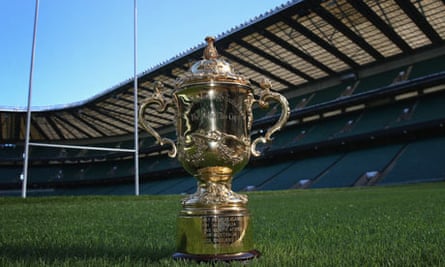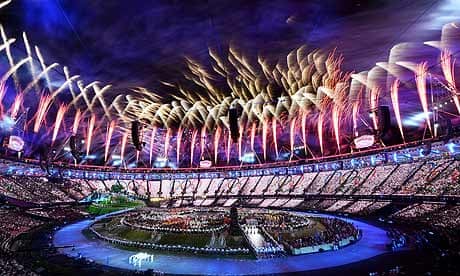Organisers of the 2015 Rugby World Cup on Thursday insisted they had balanced the need to raise ticket revenue with reaching new audiences after unveiling a match schedule that contained just four traditional rugby grounds.
Only two traditional club rugby grounds – at Gloucester and Exeter – will be be used, with the remainder of the venues made up of football stadiums and the Olympic Stadium in Stratford, which will host five matches including the third place play off.
Of the original long list of 17, stadiums in Coventry, Bristol, Derby, Southampton and Sunderland have missed out. Villa Park in Birmingham, the Etihad in Manchester, St James' Park in Newcastle, Leicester's King Power Stadium, Stadium MK in Milton Keynes, Elland Road in Leeds, the Brighton Community Stadium and Wembley will host group stage games.
From the quarter-finals onwards, only Twickenham and the Millennium Stadium will be used, in order to boost attendances and ticket sales.

Following the late withdrawal of Old Trafford from the list of potential venues, organisers faced a stiff challenge in balancing the need to deliver an £80m guaranteed return to the International Rugby Board and sell 2.9m tickets with a vow to grow the game and take it beyond traditional heartlands.
Manchester City's Etihad stepped in, but can only host one match – England's final group game against one the minnows in their group, which also contains Wales and Australia.
England will kick off their campaign at Twickenham on Friday 18 September 2015, probably against Fiji. They will then face Wales at Twickenham on 26 September and Australia, again at Twickenham, on 6 October.
In all Twickenham will host 10 matches, the Millennium Stadium eight, the Olympic Stadium in Stratford and Wembley two. Thirteen stadiums will be used in total.
The withdrawal of Old Trafford also made it essential to agree a deal with the London Legacy Development Corporation to use the Olympic Stadium, which will have a capacity of at least 56,000. It will host matches involving France, New Zealand, South Africa and Ireland – all of whom will have large travelling and ex-pat supports.
Overall, 25 matches will be played in dedicated rugby venues, seven in "multi-event stadia" and 16 in football grounds.
"Our vision is a celebration of rugby and its unique values. We want to celebrate the sport of rugby in 2015," said the England Rugby 2015 chief executive Debbie Jevans.
She said the tournament would "inspire more people to play rugby and more people to support the game". Jevans, who was director of sport for the London 2012 Olympics, added: "Everyone is invited. We want England 2015 to be an accessible tournament, open to all."
As revealed in the Guardian earlier this week, Wales will play two of their group matches at "home" at the Millennium Stadium – against two of the lesser teams in Pool A. Their crunch ties against England and Australia will both be at Twickenham, however.
"The world can now start planning for Rugby World Cup 2015. Today, we've brought the tournament to life, announcing the match venues and the full match schedule. In less than two and a half years' time, we will be welcoming the world to England and to a celebration of Rugby, played in a range of atmospheric stadiums right across the country," said Jevans.
"Rugby has so much to offer – and over the next two and a half years, we will be working hard with RWCL to deliver a tournament which celebrates the unique values of rugby and excites and inspires the nation and the world to play and support the game. The countdown to 2015 begins in earnest today and we look forward to welcoming the world to England in 2015."
The Rugby Football Union chief executive Ian Ritchie, who has vowed not to repeat the mistakes of 2003 when England's World Cup victory did not act as the hoped-for springboard to grow the game, said the list was "exciting".
"Not only is there a wide geographical spread of venues, enabling more people to watch rugby than ever before, but it is truly a national event that the game and the country will feel a part of," he said.
"We need to seize the opportunity to bring the whole country together, to inspire a new generation of players, supporters and volunteers from new communities across the length and breadth of the land."
England's head coach Stuart Lancaster added: "Now we know the shape the tournament will take, it brings everything into a sharp focus with less than two and a half years to go before the Rugby World Cup kicks off on English soil."
FULL LIST OF VENUES
Twickenham (London), Wembley Stadium (London), Olympic Stadium (London), Millennium Stadium (Cardiff), Manchester City Stadium (Manchester), St James' Park (Newcastle), Elland Road (Leeds), King Power Stadium (Leicester), Villa Park (Birmingham), Kingsholm (Gloucester), Stadium MK (Milton Keynes), Brighton Community Stadium (Brighton), Sandy Park (Exeter).

Comments (…)
Sign in or create your Guardian account to join the discussion